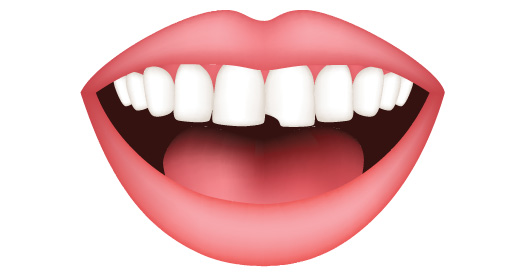August 15, 2017 | Castro Valley Cosmetic Dentistry,Cosmetic Dentistry,Cosmetic Dentistry Castro Valley,Cosmetic Dentistry Dublin,Cosmetic Dentistry in Dublin,Cosmetic Dentistry in San Ramon,Cosmetic Dentistry Pleasanton,Dental Tips,Pleasanton Cosmetic Dentisty,San Ramon Cosmetic Dentistry,

Uh oh! You’ve chipped a tooth, maybe through playing contact sports (like football or boxing), chewing hard candy, from decay, or any number of other reasons.
Don’t worry; your friends at Dublin Corners Dental, a top dentist in Pleasanton, know how to fix it!
Chipped a tooth? Here’s what to do next
So now you’re looking to fix a chipped tooth the first thing you want to do is call the team at Dublin Corners Dental. The specific treatment will depend on the how and where the tooth has chipped, but a chipped tooth is definitely not something you can treat at home. Although a chipped tooth is not generally considered an urgent emergency, you should contact us as soon as possible and make an appointment. Prompt care and treatment is your best bet at avoiding further problems due to chips, because a chip that extends beyond the tooth’s enamel risks infection, which could result in tooth loss.
Before Your Appointment
So you’ve got an appointment booked but you aren’t too sure what to do with a chipped tooth. Since a chipped tooth can be painful (especially if the nerve is exposed), we recommend over-the-counter pain medication to combat the discomfort. It often helps to rinse your mouth with warm water (neither too hot nor too cold in order to avoid triggering any sensitivity). Pressing an ice pack to your face where the chipped tooth is can also help fight swelling.
If you won’t be able to see the team at Dublin Corners Dental for a day or two, you can purchase temporary dental cement from a pharmacy. This is a short-term fix to help relieve pain and smooth jagged edges until you can come in and have your cracked tooth fixed by the dental experts at Dublin Corners Dental.
Types of Chips and How They Are Treated
The treatment to fix your chipped tooth depends on the size and severity of the chip.
- Small – A small chipped tooth usually has jagged edges. This kind of chip is superficial and can be smoothed out and polished, not requiring any further treatment. Even though this is the most minor kind of chipping that can occur, these chips should not be ignored because chips expose enamel and can lead to decay.
- Medium – Dental bonding, a process that repairs the surface of the tooth with resin that hardens and looks natural, can often repair a medium sized chip. Dental bonding is a single-visit treatment that restores your smile.
- Many medium chips only involve minor damage to the tooth enamel and can be fixed with a filling, crown, or a cap over the chipped tooth in order to restore its appearance and function, and most importantly to protect the inner layers of the tooth from decay and infection.
- Some medium chips that are a more serious cosmetic concern, perhaps because they involve multiple teeth or because your dental bonding has broken down repeatedly or become stained due to the passage of time. In this case, you may opt for porcelain veneers. Veneers replace the whole front surface of the affected teeth and last ten to twenty years. This treatment option is a two-step process and more expensive than the other options.
- Large – If a significant part of the tooth has chipped off, try to save the piece, if possible. In some cases the team at Dublin Corners may be able to reattach it via bonding. If the damage of the chip extends to the root of the tooth and exposes the nerve, this type of chip is likely to be the most painful and will require a root canal. After the tooth’s pulp and nerve are removed, a crown will then be placed over the tooth to restore it to its former strength.
Repairs to chipped teeth are common and very effective. Once your chipped tooth is repaired, you are unlikely to be able to distinguish it from the surrounding teeth, but it is important to call and make an appointment with us promptly so that we can set about putting your smile back to rights!
Don’t wait—contact us today!
